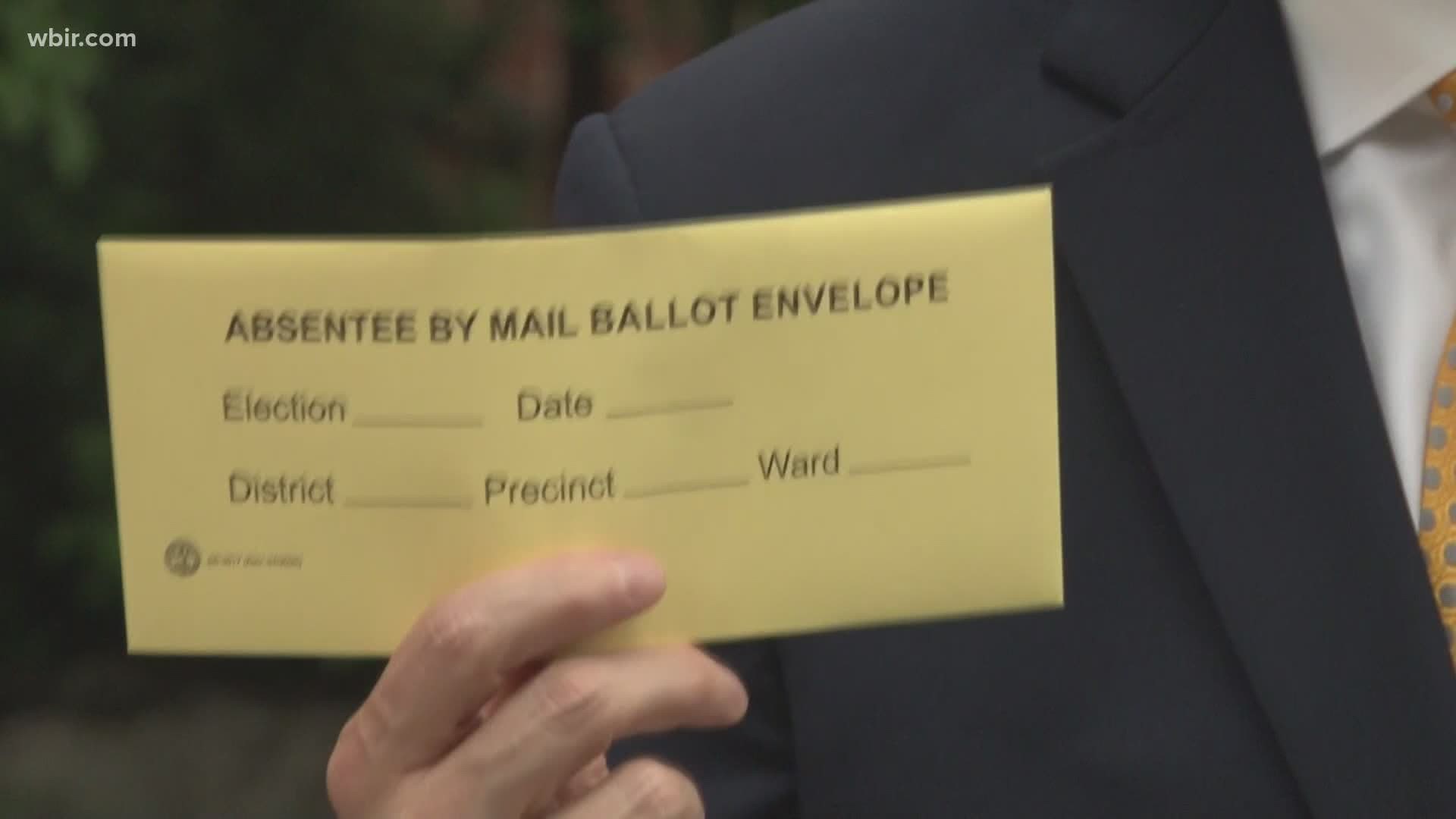NASHVILLE, Tenn. — A Nashville chancellor scolded state officials Thursday for failing to follow her orders, saying they'd have to start over on a new form that will ensure all Tennesseans have a chance to ask for a mail-in ballot because of COVID-19 concerns.
Davidson County Chancellor Ellen Hobbs Lyle heard from attorneys for the Americans Civil Liberties Union of Tennessee as well as the state. The ACLU said the state has ignored the chancellor and even decided to act on their own in creating a specific category on application forms that includes fears of COVID-19 as a reason to seek a mail-in ballot.
RELATED: 'Complicated and messy' | Voters filing for absentee ballots as decision is challenged in court
RELATED: With COVID-19 still lurking, many have option to request absentee ballot for August election
Lyle said she didn't give the state permission to do that last week when she found that it must ensure all of its 4.1 million registered voters have the option to cast ballots by mail during the coronavirus pandemic.
"Shame on you for not following that procedure and just taking matters into your own hands," she said Thursday afternoon. "So I'm calling the state out on that for not adhering to the standards of legal process and not adhering to the order. And what I'm now going to have to do to straighten it out is we're going to have to take down that form that they put together, and we're going to issue a new form along the lines that we've discussed today..."
The state has argued it's too burdensome to allow every registered Tennessean to ask for a mail-in ballot if they don't want to vote in person in the August primary, which features local, state and federal races.
The chancellor, however, ruled last week that the state’s limits on absentee voting during the pandemic constitute “an unreasonable burden on the fundamental right to vote guaranteed by the Tennessee Constitution.” The judge wrote that any eligible voter can get an absentee ballot to avoid contracting or passing on COVID-19 in the “upcoming elections during the pendency of pandemic circumstances.”
Tennesseans can use a number of designated reasons to seek a mail-in, including age (60 and over), physical disability or pending jury duty.
The chancellor required the state to “prominently post on their websites and disseminate to County Election Officials that voters who do not wish to vote in-person due to the COVID-19 virus situation are eligible to request an absentee ballot by mail or that such voters still have the option to vote in-person during Early voting or on Election Day.”
The state attorney general opposes the order and is appealing Lyle's decision. It argues Lyle has overstepped her bounds.
In the meantime, the state created a new request form that cited COVID-19 fears as a reason to seek an absentee ballot.
The ACLU cried foul about the revised form and said the state also was explicitly instructing local elections officials to refrain from sending out absentee ballots to people who requested them due to COVID concerns.
Some states that have balked at making allowances for virus fears have been sued, including Texas, where a federal judge last month ordered absentee voting be made available to any voter in the pandemic.
Deputy Attorney General Janet Kleinfelter told Lyle the state "is not in the business of not complying with orders of the court, and there was absolutely no intent here to violate the court’s order."
Lyle nevertheless was unhappy Thursday.
"No private litigant or business would take a court's order and say, 'Oh, I've got a better idea,' and just do it their own way in derogation of what the court said. And that's what the state did in this case."
She went on: "They (the state) changed and modified my order, and have added a step and a nuance and maybe even a chilling effect, it's not clear."
To "clean up the mess made by the state," the chancellor said she would strip out the new application excuse put in by the state and add language in two existing excuse categories about health to include a reference "to the COVID-19 situation."
The ACLU sought sanctions again the state. Lyle, however, declined, because she doesn’t want to punish taxpayers and public budgets that have already been hit as a result of the pandemic.
The Associated Press contributed to this report.

